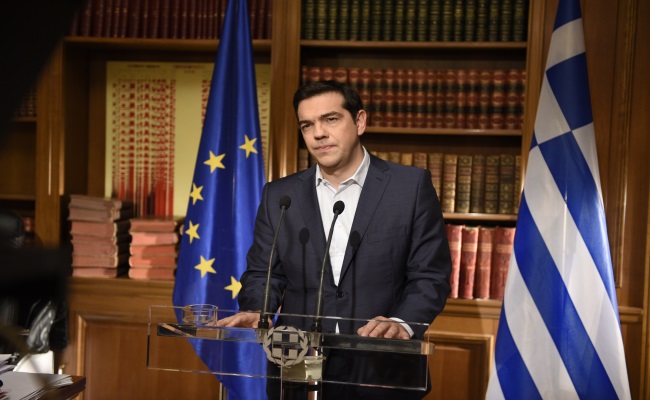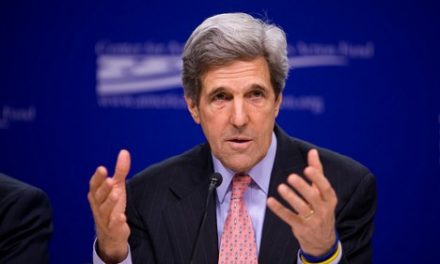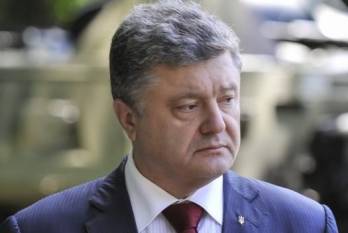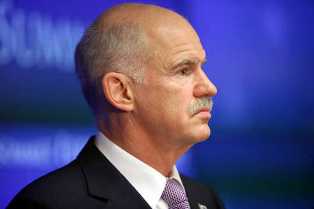By Nikos Chrysoloras, Bloomberg
As Greek Prime Minister Alexis Tsipras steps down, his bid to regain a parliamentary majority with early elections risks failing as low turnout and disarray within his Syriza party threaten to yield no clear winner.
Public disillusionment with Tsipras’s unfulfilled promise to end spending cuts and tax increases may lead to a fragmented parliament and difficult coalition talks. President Prokopis Pavlopoulos is expected to dissolve parliament by Friday and call the vote for Sept. 20. It will be the third time Greeks go to the polls this year after an election in January and referendum in July on whether to accept more austerity.
“Fatigue and indifference because of the perception that there’s no real choice to be made after Tsipras’s capitulation may lead to a loose protest vote and poor turnout,” Dimitris Drakopoulos, an analyst at Nomura International, said by e-mail.
Tsipras secured parliamentary backing for a third bailout thanks to votes from opponents. While the 41-year-old leader is shifting toward the center ground, the risk is that Syriza and the New Democracy opposition become entrenched and a stalemate ensues with neither able to form a workable government. At stake is the implementation of measures agreed with creditors in return for the 86 billion-euro ($98 billion) rescue package.
Voter Reaction
The most recent polls, taken before Tsipras’s resignation last week, still give him the lead after he swept to power seven months ago on a wave of anti-austerity sentiment. In his first interview after quitting, Tsipras told Alpha TV on Wednesday that he won’t lead a coalition with the country’s main opposition parties if he doesn’t gain a majority.
The question is how voters react to the rebellion within his party and the austerity measures attached to the new loan facility he agreed with the European Stability Mechanism.
In the July referendum, Tsipras urged voters to vote against the conditions previously set out by European creditors to keep aid flowing. They heeded his call emphatically, only for him to agree to the bailout anyway.
He will now run a campaign focused on an agenda against corruption, oligarchs and the old political establishment, said Theodore Pelagidis, a senior fellow at Brookings Institution and professor of economics at the University of Piraeus.
“He will try to reunite the center,” said Pelagidis. “In this respect, he may even gain from Syriza’s effective dissolution.”
Euro Expulsion
After six months of brinkmanship that pushed Greece to the verge of expulsion from the euro, both Tsipras and New Democracy, led by Evangelos Meimarakis, have vowed to keep Greece in the currency bloc and implement what the country has agreed with its creditors.
That leaves voters with only parties on the far left and far right of the political spectrum that oppose Europe.
Tsipras will probably lose votes to former Energy Minister Panagiotis Lafazanis’s Popular Unity, formed by about 25 Syriza dissenters who refused to back the bailout deal. Other senior Syriza officials either resigned their party posts in protest or won’t run again for re-election. That may cost Tsipras in terms of grassroots and local community mobilization, with some of his backers disappointed by his policy U-turn.
“I won’t buy tickets to return to Greece just to vote because it’s pointless,” said Iason, 25, who studies in the U.K. and was in Athens on vacation. Like many Greeks discussing politics, he declined to give his full name. “I would vote for Syriza again if it hadn’t been for the referendum” and what happened after, he said.
Fragmented Parliament
The winner of the election needs to secure a majority in the country’s 300-seat chamber. Failure to do so because of a fragmented legislature would delay the implementation of prior actions required for the disbursement of the next bailout tranches. They include the recapitalization of Greek banks, which are struggling under capital controls.
“The issue here will be governance and whether the political forces in parliament will find a way to move the country’s agenda forward,” said Dimitrios Triantaphyllou, chair of the department of international relations at Kadir Has University in Istanbul. “Albeit with their differences.”



















